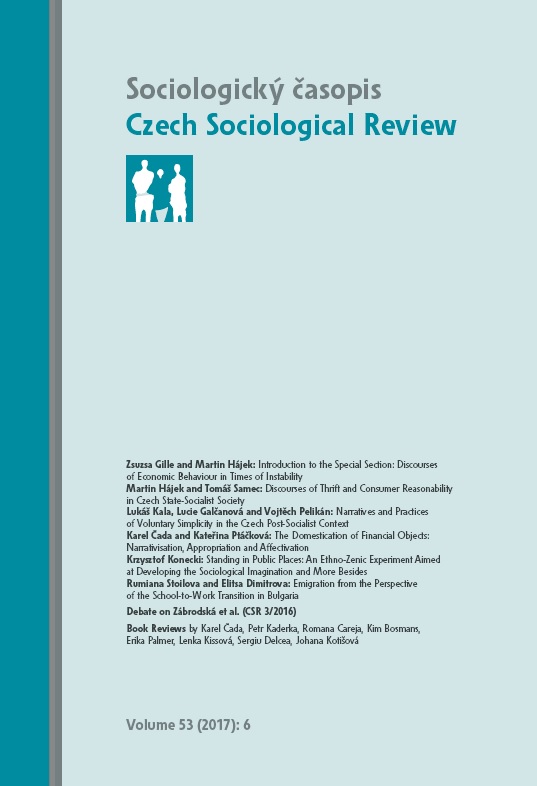Narratives and Practices of Voluntary Simplicity in the Czech Post-Socialist Context
Narratives and Practices of Voluntary Simplicity in the Czech Post-Socialist Context
Author(s): Lukáš Kala, Lucie Galčanová, Vojtěch PelikánSubject(s): National Economy, Economic development
Published by: AV ČR - Akademie věd České republiky - Sociologický ústav
Keywords: voluntary simplicity; non-consumption lifestyles; theory of postmaterialism; motivations for simplicity; post-socialism
Summary/Abstract: Voluntary simplicity is usually seen as an alternative social movement that is responding to the current social and environmental crisis within affluent societies. Many scholars draw on Inglehart’s concept of post-materialism and consider voluntary simplicity to be a way of limiting one’s consumption in order to free oneself and seek satisfaction in the non-material aspects of life. These scholars assume that the values associated with simplicity emerge out of over-saturation with consumption. This article discusses the results of research conducted among Czech households who voluntarily reduce consumption and who do so in a post-socialist context, without having first lived in affluence. Theoretically and methodologically, the article builds on the work of Hana Librová [1994, 2003; Librová et al. 2016] and is rooted in three main concepts: the concepts of post-materialism [Inglehart 1977], ‘new luxury’ [Enzensberger 1996], and the normative ethical theories of motivation [Pelikán and Librová 2015]. The findings of the study call into question Inglehart’s structural assumption that non-consumption lifestyles like voluntary simplicity only develop in affluent societies and suggest that the Czech socialist past created conditions suitable for the emergence of a non-ideological and primarily self-oriented version of voluntary simplicity. The roots of simple lifestyles may also lie in people’s dissatisfaction with the promise of modernity, a promise suggesting that it is possible to attain and lead the good life through material abundance. Prior experience with an affluent lifestyle did not play a role in the decision of participants in this study to live a nonconsumption lifestyle. This study in a post-socialist country therefore has the potential to provide a deeper understanding of the motivations for choosing voluntary simplicity.
Journal: Sociologický časopis / Czech Sociological Review
- Issue Year: 53/2017
- Issue No: 06
- Page Range: 833-855
- Page Count: 23
- Language: English

